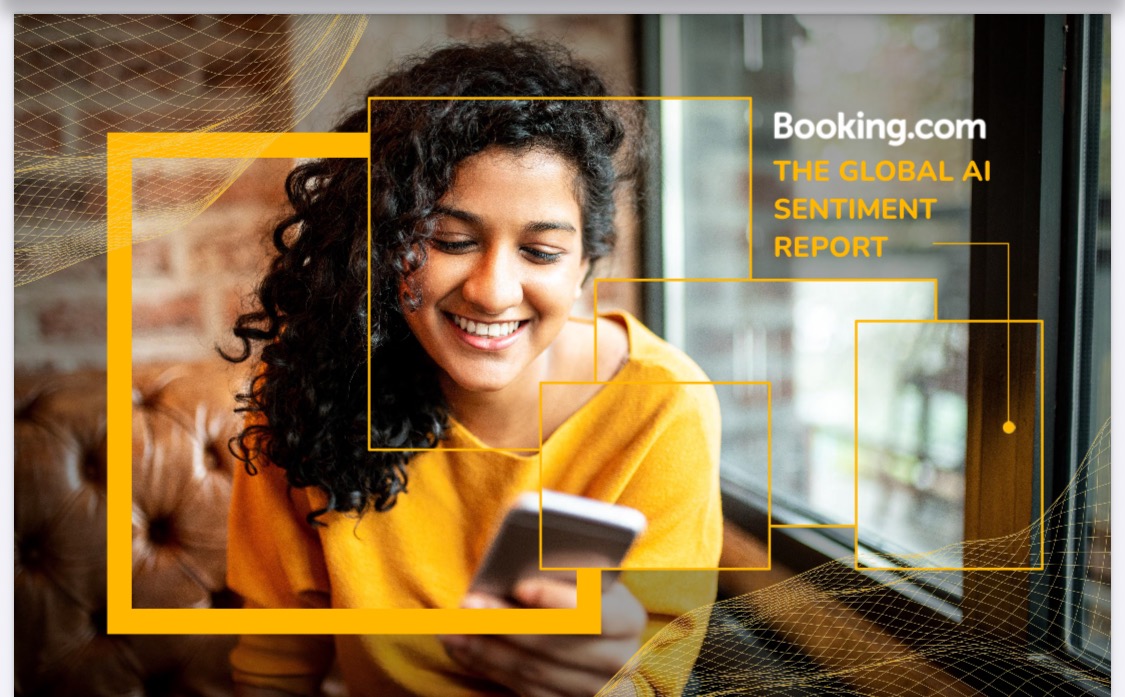
India Among World’s Most AI-Positive Nations, Says Booking.com Report
Indian travellers are among the most enthusiastic adopters of artificial intelligence globally, according to Booking.com’s newly released Global AI Sentiment Report. Drawing insights from over 37,000 respondents across 33 countries, the report highlights India’s strong curiosity and readiness to integrate AI into daily life — particularly when it comes to travel.
A remarkable 99% of Indian respondents said they are excited about AI, and 96% claimed familiarity with how the technology works. Nearly all — 98% — expressed a desire to use AI in future travel planning, far surpassing the global average and indicating a high level of comfort with innovation in this space.
The report comes as Booking.com continues to invest heavily in AI tools to reimagine how people discover, book, and experience travel. Glenn Fogel, CEO of Booking Holdings, puts the shift into perspective:
“We are on the edge of the most radical reinvention travel has ever seen. Generative AI isn’t just enhancing experiences — it’s changing everything we know about how people dream, plan, and book their journeys. At Booking.com, we’ve been building toward this moment for years — and what’s coming with agentic search will make today’s innovations look primitive. The next generation of journeys will be intuitive, intelligent, and deeply personal.”
A High-Tech Yet Cautious India
The findings show that while Indians are embracing AI, they are not blindly trusting it. Only 16% of Indian consumers said they fully trust AI, and just 12% feel comfortable letting it make decisions independently. Most still prefer a human in the loop, with 38% calling AI impersonal and 32% always fact-checking AI outputs.
This distinction matters. Indians view AI as a tool to enhance — not replace — human judgment. Most of the 2,000 Indian respondents in the survey agree that AI makes life easier (87%), saves time (65%), and boosts learning (64%), but they expect to remain in charge.
AI in Indian Travel: From Planning to Post-Trip
AI tools are already embedded in how Indians travel. Nearly all respondents (99%) said they’ve used AI in some part of their journey — from pre-trip research to booking, and even while exploring a destination.
During trip planning, AI is commonly used to:
- Research destinations and ideal travel times (53%)
- Discover local experiences and cultural activities (44%)
- Get restaurant recommendations (42%)
On the ground, it helps travellers:
- Translate languages (55%)
- Find things to do (52%)
- Navigate unfamiliar areas (41%)
AI assistants (45%) have emerged as more trusted than social media influencers (31%) and even colleagues (23%), reflecting a shift in how travel decisions are made. After returning home, the most cited use of AI is photo editing (51%).
A Responsible AI Future
The report also shows Indian travellers are becoming more conscious of the broader impact of their choices. Four in five want AI to help them avoid overcrowded places and highlight experiences that benefit local communities.
Santosh Kumar, Regional Manager, South Asia at Booking.com, highlighted this shift. “In India, people are not just curious about generative AI, they are already relying on it as a co-pilot in shaping travel decisions. The opportunity ahead is tremendous, but our responsibility is just as large — to build trust, ensure transparency, and prioritise safety,” he says.
India Leads the AI way
Regionally, Latin America scored highest for AI enthusiasm and familiarity, but India wasn’t far behind. Asia Pacific respondents (including India) showed strong willingness to adopt AI in everyday life — far more than those in Europe or North America, where skepticism and mistrust are more common.
Even as Indian consumers lead the global AI charge, the report makes clear that enthusiasm is grounded in pragmatism. AI is welcome — but not worshipped. It is appreciated — but questioned. This balance may well shape how India sets the pace for AI adoption in travel and beyond.
Post a comment